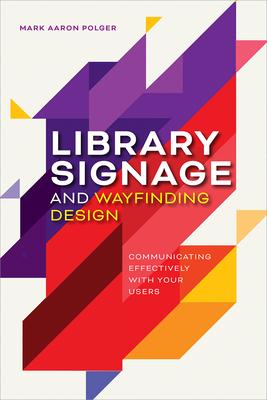Take a more user-centered approach to crafting library signage with this handy guide. Well-designed signage is clear, direct, and reduces confusion and frustration among library users and library workers alike--and also complies with the Americans with Disabilities Act (ADA), bolstering accessibility. Using the principles and examples laid out by Polger, you'll learn
- how to spot the telltale features of poor design, from signage that's wordy, passive aggressive, too small, unfriendly or threatening, to wayfinding that uses inconsistent terminology or different color schemes or typefaces;
- why taking a UX (user experience) approach can help make the library a welcoming space;
- core UX criteria for effective wayfinding design, such as the specific design zones of a sign, appropriate typefaces, color schemata, text to image ratio, text and image sizes, contrast, and viewing distance;
- about important considerations like placement and touchpoints;
- best practices for using ADA compliance guidelines when performing a library signage audit;
- special approaches for digital signage; and
- techniques that signage designers can use when studying library users to better understand their perceptions, feelings, and attitudes regarding signage and wayfinding.
